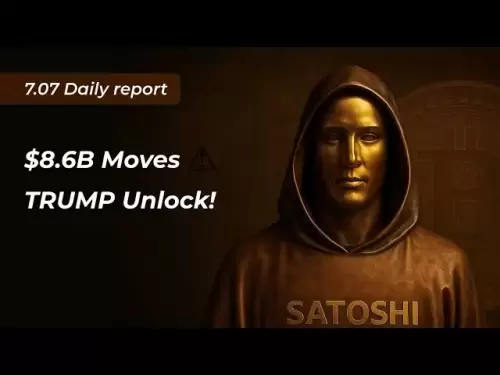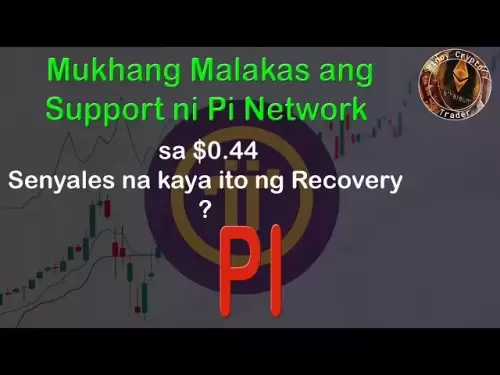-
 Bitcoin
Bitcoin $108,708.8110
0.60% -
 Ethereum
Ethereum $2,561.6057
1.91% -
 Tether USDt
Tether USDt $1.0001
-0.03% -
 XRP
XRP $2.2795
0.57% -
 BNB
BNB $662.2393
1.00% -
 Solana
Solana $153.1346
3.74% -
 USDC
USDC $1.0000
0.00% -
 TRON
TRON $0.2877
0.97% -
 Dogecoin
Dogecoin $0.1710
3.93% -
 Cardano
Cardano $0.5871
1.61% -
 Hyperliquid
Hyperliquid $39.6663
1.68% -
 Sui
Sui $2.9032
0.79% -
 Bitcoin Cash
Bitcoin Cash $496.1879
1.71% -
 Chainlink
Chainlink $13.5807
3.01% -
 UNUS SED LEO
UNUS SED LEO $9.0777
0.61% -
 Stellar
Stellar $0.2514
4.51% -
 Avalanche
Avalanche $18.1761
1.86% -
 Shiba Inu
Shiba Inu $0.0...01173
1.72% -
 Toncoin
Toncoin $2.8010
-4.23% -
 Hedera
Hedera $0.1594
3.21% -
 Litecoin
Litecoin $87.0257
-0.53% -
 Monero
Monero $319.1217
1.79% -
 Polkadot
Polkadot $3.3853
0.68% -
 Dai
Dai $0.9999
-0.01% -
 Ethena USDe
Ethena USDe $1.0003
0.02% -
 Bitget Token
Bitget Token $4.3420
-0.97% -
 Uniswap
Uniswap $7.3772
1.39% -
 Aave
Aave $286.6277
5.61% -
 Pepe
Pepe $0.0...09994
2.33% -
 Pi
Pi $0.4589
1.76%
What fiat deposit methods does Bitstamp support?
Bitstamp offers various fiat deposit methods including SEPA, international bank transfers, credit/debit cards, Apple Pay, Google Pay, and cryptocurrency deposits for global users.
Apr 24, 2025 at 10:49 pm
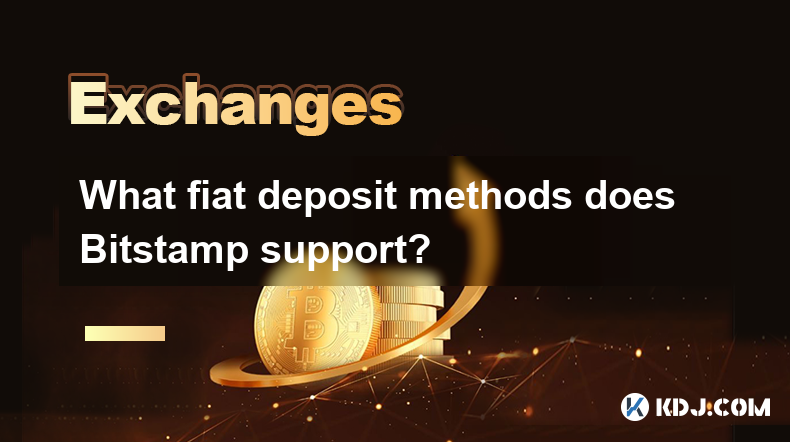
Bitstamp, one of the leading cryptocurrency exchanges, offers a variety of fiat deposit methods to cater to its global user base. Understanding these methods is crucial for users who wish to fund their accounts efficiently and securely. This article will delve into the different fiat deposit options available on Bitstamp, providing detailed information on how to use each method.
Bank Transfer (SEPA and International)
Bank transfers are one of the most common methods for depositing fiat currency into a Bitstamp account. Bitstamp supports both SEPA (Single Euro Payments Area) transfers for users within the European Union and international bank transfers for users outside the EU.
SEPA Transfers: For users within the EU, SEPA transfers are the preferred method due to their low cost and fast processing times. To deposit via SEPA, follow these steps:
- Log into your Bitstamp account.
- Navigate to the "Deposit" section.
- Select "Euro" as the currency and choose "SEPA" as the deposit method.
- Enter the amount you wish to deposit and follow the on-screen instructions to complete the transfer.
- Once the transfer is initiated, it typically takes 1-2 business days to reflect in your Bitstamp account.
International Bank Transfers: For users outside the EU, international bank transfers are available. These transfers may take longer and incur higher fees compared to SEPA transfers. To deposit via international bank transfer, follow these steps:
- Log into your Bitstamp account.
- Navigate to the "Deposit" section.
- Select your preferred currency (e.g., USD, GBP) and choose "International Bank Transfer" as the deposit method.
- Enter the amount you wish to deposit and follow the on-screen instructions to complete the transfer.
- International transfers can take 3-5 business days to reflect in your Bitstamp account.
Credit/Debit Card
Credit and debit card deposits offer a convenient and fast way to fund your Bitstamp account. Bitstamp supports deposits via Visa and MasterCard, allowing users to quickly add funds to their accounts.
- To deposit using a credit or debit card, follow these steps:
- Log into your Bitstamp account.
- Navigate to the "Deposit" section.
- Select "Credit/Debit Card" as the deposit method.
- Enter the amount you wish to deposit and provide your card details.
- Follow the on-screen instructions to complete the transaction.
- Card deposits are typically processed instantly, allowing you to start trading immediately.
Apple Pay and Google Pay
Apple Pay and Google Pay are modern payment methods that Bitstamp supports, offering a seamless and secure way to deposit funds. These methods are particularly useful for users who prefer mobile payments.
- To deposit using Apple Pay or Google Pay, follow these steps:
- Log into your Bitstamp account.
- Navigate to the "Deposit" section.
- Select "Apple Pay" or "Google Pay" as the deposit method.
- Enter the amount you wish to deposit and follow the on-screen instructions to complete the transaction using your mobile device.
- Deposits via Apple Pay and Google Pay are processed instantly, allowing you to start trading without delay.
Cryptocurrency Deposits
While not a traditional fiat deposit method, cryptocurrency deposits are another way to fund your Bitstamp account. Bitstamp supports a wide range of cryptocurrencies, allowing users to deposit digital assets and convert them to fiat currencies.
- To deposit cryptocurrency, follow these steps:
- Log into your Bitstamp account.
- Navigate to the "Deposit" section.
- Select the cryptocurrency you wish to deposit (e.g., Bitcoin, Ethereum).
- Follow the on-screen instructions to generate a deposit address and complete the transfer from your external wallet.
- Cryptocurrency deposits are typically processed within minutes, depending on the blockchain's confirmation times.
Fees and Limits
Understanding the fees and limits associated with each deposit method is essential for managing your funds effectively on Bitstamp.
- SEPA Transfers: SEPA deposits are generally free, but some banks may charge a small fee. The minimum deposit amount is typically €10, with no maximum limit.
- International Bank Transfers: These transfers may incur fees from both your bank and Bitstamp. The minimum deposit amount varies by currency, and there may be a maximum limit depending on your account verification level.
- Credit/Debit Card: Card deposits may incur a fee of around 5% of the transaction amount. The minimum deposit amount is typically $10 or the equivalent in other currencies, with a maximum limit of $20,000 per transaction.
- Apple Pay and Google Pay: These methods may also incur a fee of around 5% of the transaction amount. The minimum and maximum deposit limits are similar to those for credit/debit card deposits.
- Cryptocurrency Deposits: There are no fees for depositing cryptocurrencies, but you may need to pay network fees to the blockchain. There are no minimum or maximum limits for cryptocurrency deposits.
Verification and Security
Before you can use any of the fiat deposit methods on Bitstamp, you must complete the verification process. This process is designed to comply with regulatory requirements and enhance the security of your account.
- To complete the verification process, follow these steps:
- Log into your Bitstamp account.
- Navigate to the "Verification" section.
- Provide the required personal information, including your full name, date of birth, and address.
- Upload the necessary identification documents, such as a passport or driver's license, and a proof of address document, such as a utility bill.
- Once your documents are submitted, Bitstamp will review them, and you will receive an email notification once your account is verified.
Security measures are also crucial when depositing funds into your Bitstamp account. Bitstamp employs various security protocols to protect your funds, including two-factor authentication (2FA), encryption, and cold storage for the majority of user funds.
- To enable 2FA, follow these steps:
- Log into your Bitstamp account.
- Navigate to the "Security" section.
- Select "Enable Two-Factor Authentication" and follow the on-screen instructions to set up 2FA using an authenticator app or SMS.
By understanding and utilizing the various fiat deposit methods available on Bitstamp, users can efficiently fund their accounts and engage in cryptocurrency trading. Each method has its own advantages and considerations, so it's important to choose the one that best suits your needs.
Frequently Asked Questions
Q: Can I deposit fiat currency from any bank account into Bitstamp?
A: Yes, you can deposit fiat currency from any bank account, but the specific method and fees may vary depending on your location and the type of transfer you choose. For example, SEPA transfers are available for users within the EU, while international bank transfers are available for users outside the EU.
Q: Are there any restrictions on the frequency of deposits using credit/debit cards?
A: Bitstamp may impose restrictions on the frequency of deposits using credit/debit cards to prevent fraud and comply with card network rules. Typically, you can make multiple deposits per day, but there may be a limit on the total amount you can deposit within a certain period.
Q: How long does it take for a cryptocurrency deposit to be credited to my Bitstamp account?
A: The time it takes for a cryptocurrency deposit to be credited to your Bitstamp account depends on the blockchain's confirmation times. For Bitcoin, it typically takes 1-2 confirmations (about 10-20 minutes), while for Ethereum, it usually takes 12 confirmations (about 3 minutes).
Q: Can I deposit multiple currencies into my Bitstamp account using the same method?
A: Yes, you can deposit multiple currencies into your Bitstamp account using the same method, provided that Bitstamp supports the specific currency and deposit method. For example, you can use SEPA transfers to deposit both EUR and GBP if Bitstamp supports these currencies for SEPA transfers.
Disclaimer:info@kdj.com
The information provided is not trading advice. kdj.com does not assume any responsibility for any investments made based on the information provided in this article. Cryptocurrencies are highly volatile and it is highly recommended that you invest with caution after thorough research!
If you believe that the content used on this website infringes your copyright, please contact us immediately (info@kdj.com) and we will delete it promptly.
- Ozak AI Presale: The AI Token Race to $1 and Beyond
- 2025-07-08 00:30:13
- Bitcoin Miners, AI Wars, and the US Learning Curve: A New York State of Mind
- 2025-07-08 00:30:13
- Arctic Pablo: The Meme Coin Melting Crypto in 2025?
- 2025-07-08 00:50:13
- Plume, SkyLink, and Real Yield: Bridging TRON to Real-World Assets
- 2025-07-08 00:50:13
- Bitcoin Whale's Mystery Move: Price Hike Incoming?
- 2025-07-08 00:55:12
- Bitcoin, Jon Atack, and El Salvador: A Crypto Conundrum
- 2025-07-07 23:15:12
Related knowledge
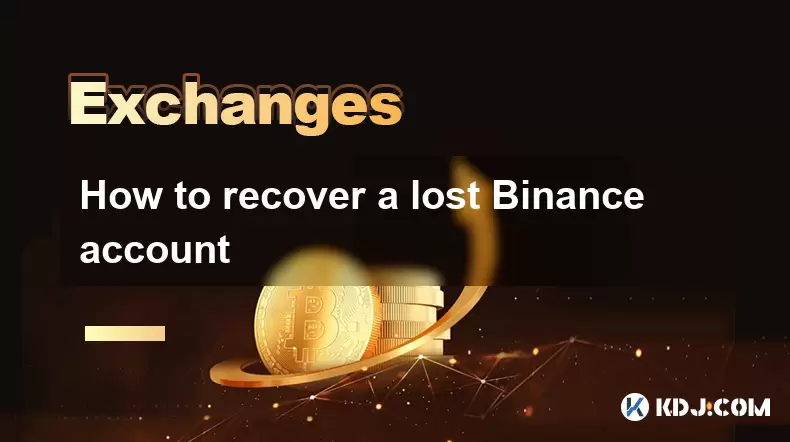
How to recover a lost Binance account
Jul 07,2025 at 09:07pm
What Happens When a Binance Account Is Lost?Losing access to your Binance account can be a distressing experience, especially if you hold significant digital assets. This typically occurs due to forgotten login credentials, loss of two-factor authentication (2FA) devices, or compromised accounts. Understanding the exact reason behind losing access is cr...
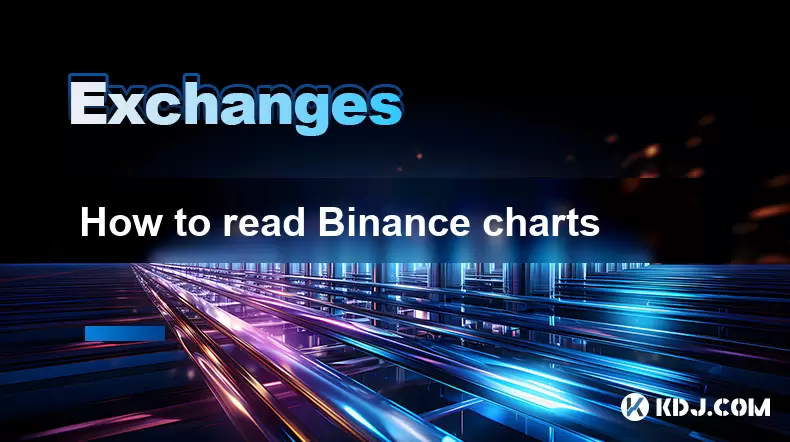
How to read Binance charts
Jul 07,2025 at 08:14pm
Understanding the Basics of Binance ChartsReading Binance charts effectively is essential for making informed trading decisions in the cryptocurrency market. Before diving into technical indicators and candlestick patterns, it's important to understand the basic layout of a chart on the Binance platform. The default chart interface displays price moveme...
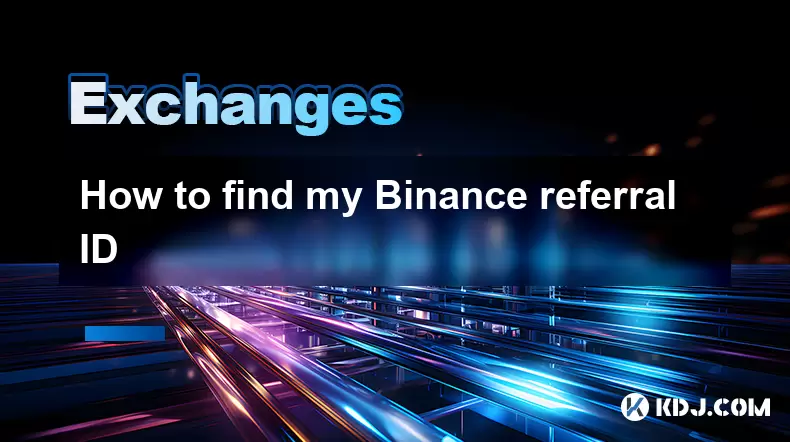
How to find my Binance referral ID
Jul 07,2025 at 06:29pm
What is a Binance Referral ID?A Binance Referral ID is a unique identifier assigned to each user on the Binance platform. This ID allows users to refer new traders to Binance and earn commissions from their trading fees. The referral program is an integral part of Binance’s ecosystem, encouraging community growth and rewarding active participants. Every...
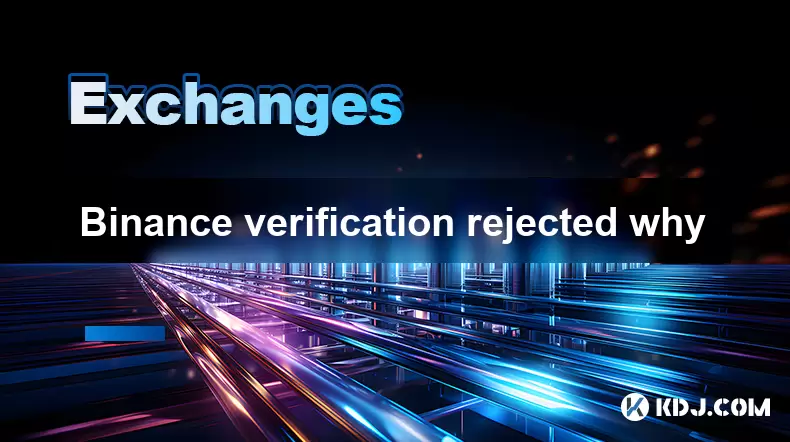
Binance verification rejected why
Jul 07,2025 at 06:57pm
Understanding Binance Verification RejectionIf your Binance verification was rejected, you're likely searching for answers on why this happened and how to resolve it. Binance, as one of the world's largest cryptocurrency exchanges, requires users to complete identity verification to comply with Know Your Customer (KYC) regulations. When a verification r...
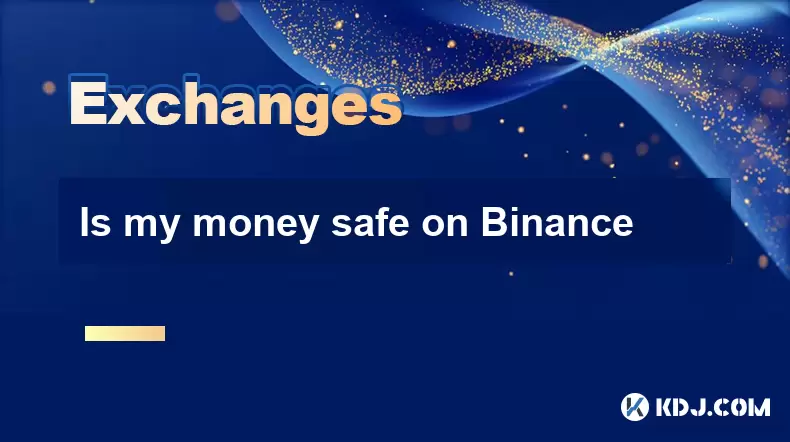
Is my money safe on Binance
Jul 07,2025 at 10:43pm
Understanding the Security Measures of BinanceWhen users ask, 'Is my money safe on Binance', they are typically concerned about the security protocols and trustworthiness of one of the world’s largest cryptocurrency exchanges. Binance has implemented multiple layers of security to protect user funds, including two-factor authentication (2FA), anti-phish...
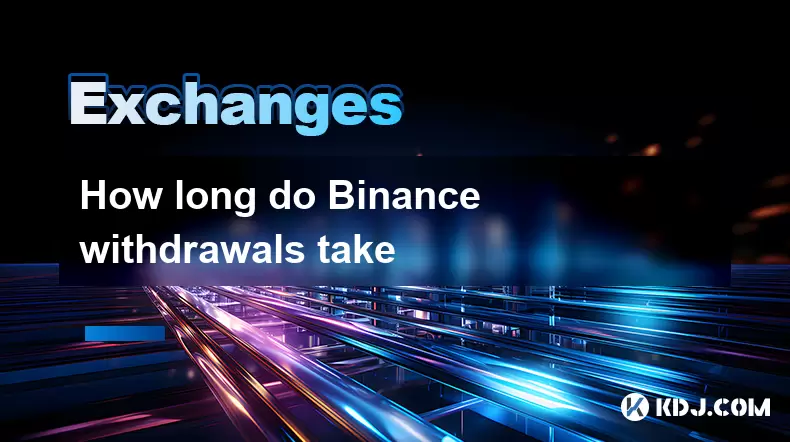
How long do Binance withdrawals take
Jul 07,2025 at 09:21pm
Understanding the Withdrawal Process on BinanceWhen users initiate a Binance withdrawal, they often wonder how long it will take for their funds to arrive at their destination wallet. The duration of a Binance withdrawal depends on several factors, including the cryptocurrency being withdrawn, network congestion, and blockchain confirmations required by...

How to recover a lost Binance account
Jul 07,2025 at 09:07pm
What Happens When a Binance Account Is Lost?Losing access to your Binance account can be a distressing experience, especially if you hold significant digital assets. This typically occurs due to forgotten login credentials, loss of two-factor authentication (2FA) devices, or compromised accounts. Understanding the exact reason behind losing access is cr...

How to read Binance charts
Jul 07,2025 at 08:14pm
Understanding the Basics of Binance ChartsReading Binance charts effectively is essential for making informed trading decisions in the cryptocurrency market. Before diving into technical indicators and candlestick patterns, it's important to understand the basic layout of a chart on the Binance platform. The default chart interface displays price moveme...

How to find my Binance referral ID
Jul 07,2025 at 06:29pm
What is a Binance Referral ID?A Binance Referral ID is a unique identifier assigned to each user on the Binance platform. This ID allows users to refer new traders to Binance and earn commissions from their trading fees. The referral program is an integral part of Binance’s ecosystem, encouraging community growth and rewarding active participants. Every...

Binance verification rejected why
Jul 07,2025 at 06:57pm
Understanding Binance Verification RejectionIf your Binance verification was rejected, you're likely searching for answers on why this happened and how to resolve it. Binance, as one of the world's largest cryptocurrency exchanges, requires users to complete identity verification to comply with Know Your Customer (KYC) regulations. When a verification r...

Is my money safe on Binance
Jul 07,2025 at 10:43pm
Understanding the Security Measures of BinanceWhen users ask, 'Is my money safe on Binance', they are typically concerned about the security protocols and trustworthiness of one of the world’s largest cryptocurrency exchanges. Binance has implemented multiple layers of security to protect user funds, including two-factor authentication (2FA), anti-phish...

How long do Binance withdrawals take
Jul 07,2025 at 09:21pm
Understanding the Withdrawal Process on BinanceWhen users initiate a Binance withdrawal, they often wonder how long it will take for their funds to arrive at their destination wallet. The duration of a Binance withdrawal depends on several factors, including the cryptocurrency being withdrawn, network congestion, and blockchain confirmations required by...
See all articles





















